I think it’s important to preface this piece with a little context: My skin has been through a lot. I’ve been struggling with hormonal acne since I was 11 and it has been a real journey (I’m 22 now, FYI, so we’re a good decade on).
Surprise, surprise: There aren’t any photos of my skin at its worst because 1) I hate taking selfies, 2) Teenage me did not have the foresight to document my skin journey when it was happening, and 3) Even if I did, I’m not sure I’d be comfortable sharing them on the void that is the internet. Sorry! You’ll have to make do with the slightly more recent selfies straight from the group chats. I don’t know if it’s obvious, but these were not taken with the goal of being shared. Whoops.
Now, my acne hasn’t been consistently soul-crushing the entire time. This is thanks to a mix of dermatologist-prescribed antibiotics, hormonal pills, two rounds of isotretinoin, and some antifungals (plus a few visits to an esthetician here and there). Medication and facials definitely helped to clear my breakouts for a time. That said, one way or another, my skin always found a way back to its equilibrium—AKA breakout central.
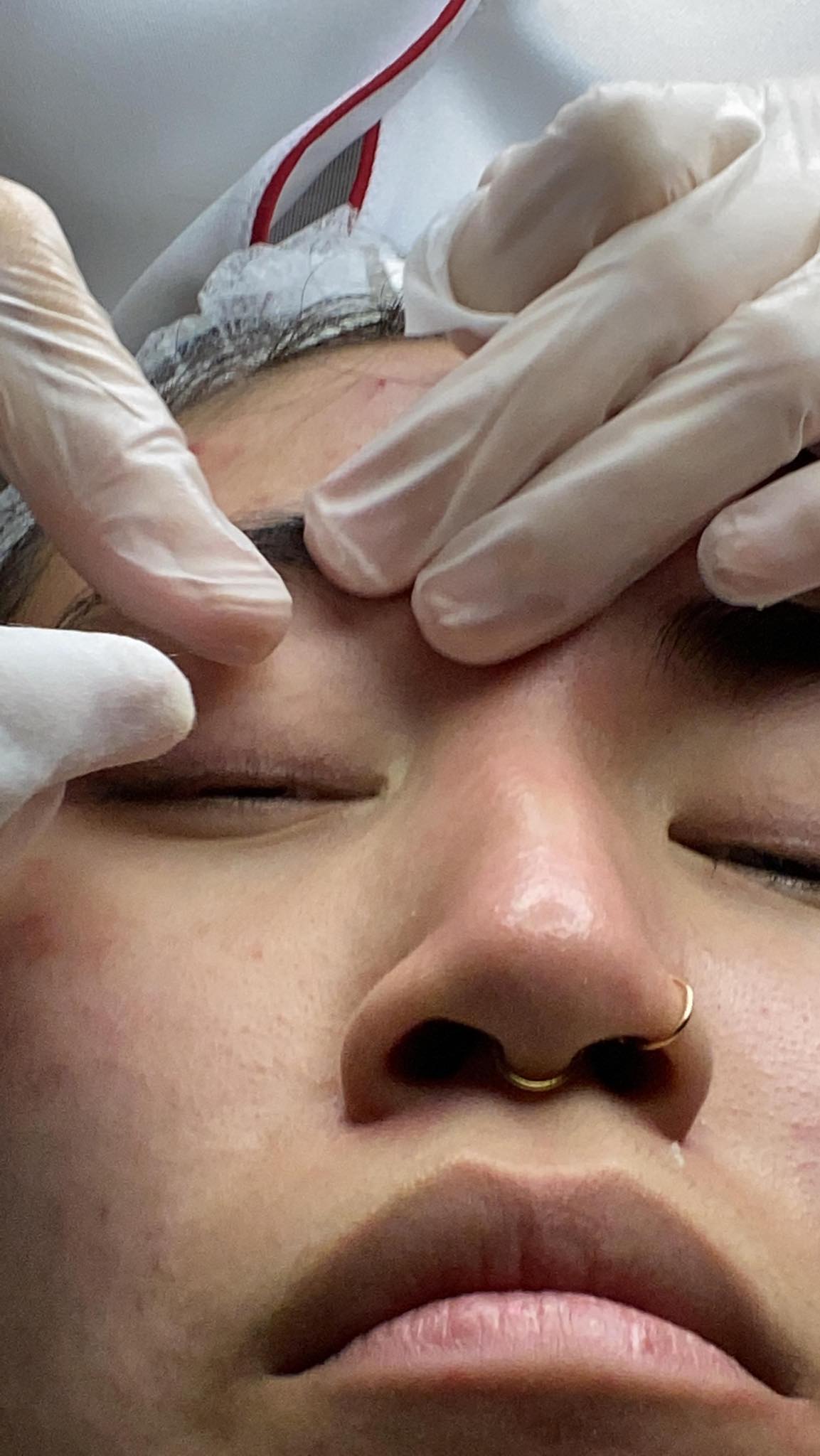
After doing a little digging, I found the root of the problem: My acne is intrinsically linked to my periods, and my periods are affected by my dysfunctional reproductive system (not something I really want to get into right now, but maybe another day). All in all, there’s a lot of nonsense going on down there, and it has spent the last decade of my life giving me grief from the inside out.
Thankfully, it only took me a decade, but I have finally worked out the pattern regarding my skin issues (the uterus issues are still TBC). In essence, my skin type is constantly changing and evolving (much to my exasperation). At the moment, the pattern looks something like this: In the two weeks leading up to my period, my skin behaves. At this point, it is bouncy, hydrated, and clear (or on its way to clearing up), bar a few scars and spots of hyperpigmentation leftover from my last breakout.
However, in the two weeks after my period, my skin is a combination nightmare. No matter how many hydrating serums or entire litres of water I throw at it, it will be overly oily (a sign of dehydration), yet also flaky and dry. Yes. Flaky. In addition to the texture, this time of the month is also often accompanied by minor clusters of breakouts on my forehead, my mouth, my jaw, and over my back and chest.
NOTE: Pre-isotretinoin (also known as Accutane), my breakouts were concentrated around my T-zone (nothing new there—a teenager with acne? Shocker). However, now, as I have approached adulthood (gross), the breakouts have migrated to areas that are more consistent with hormonal causes.
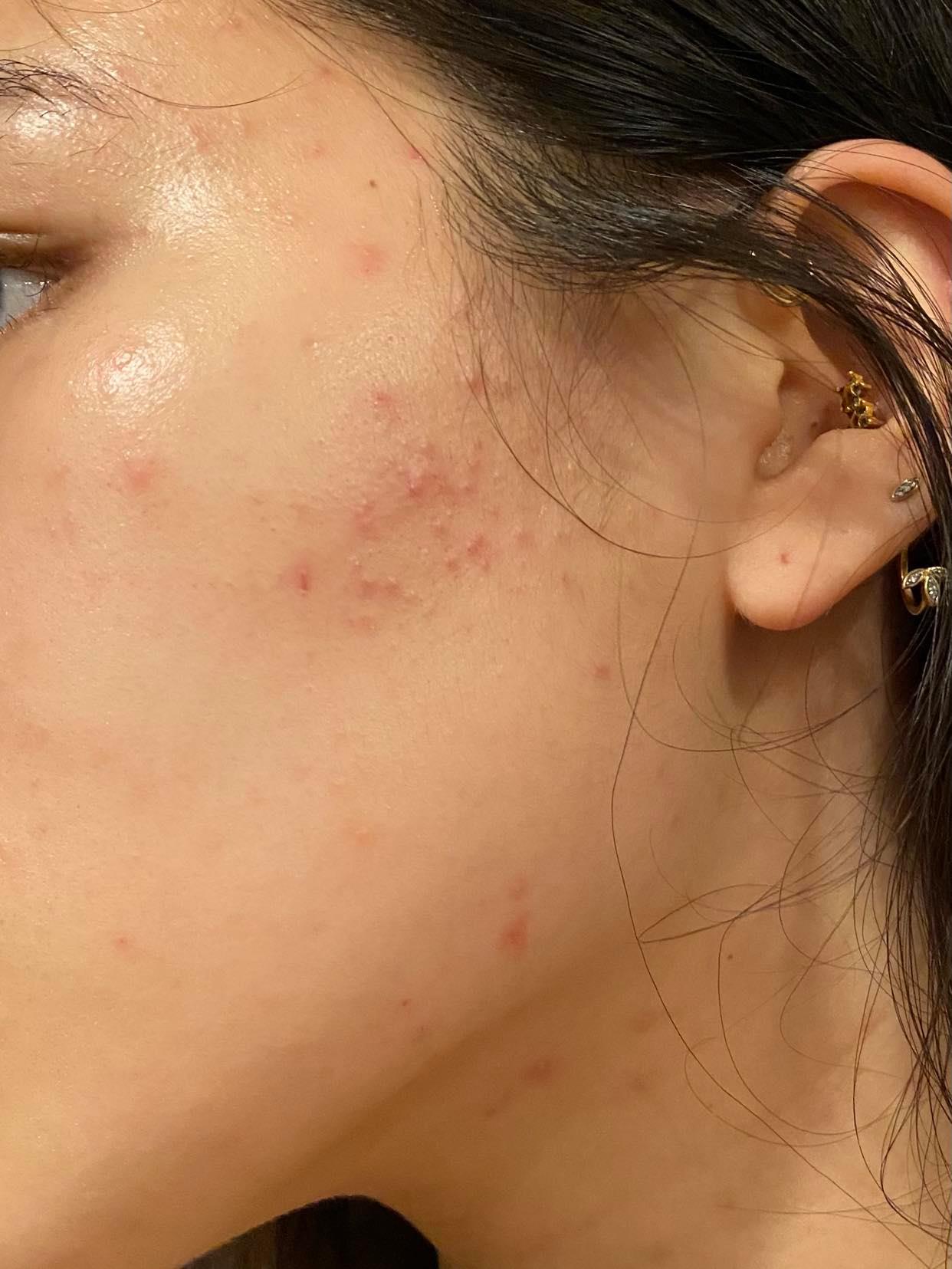
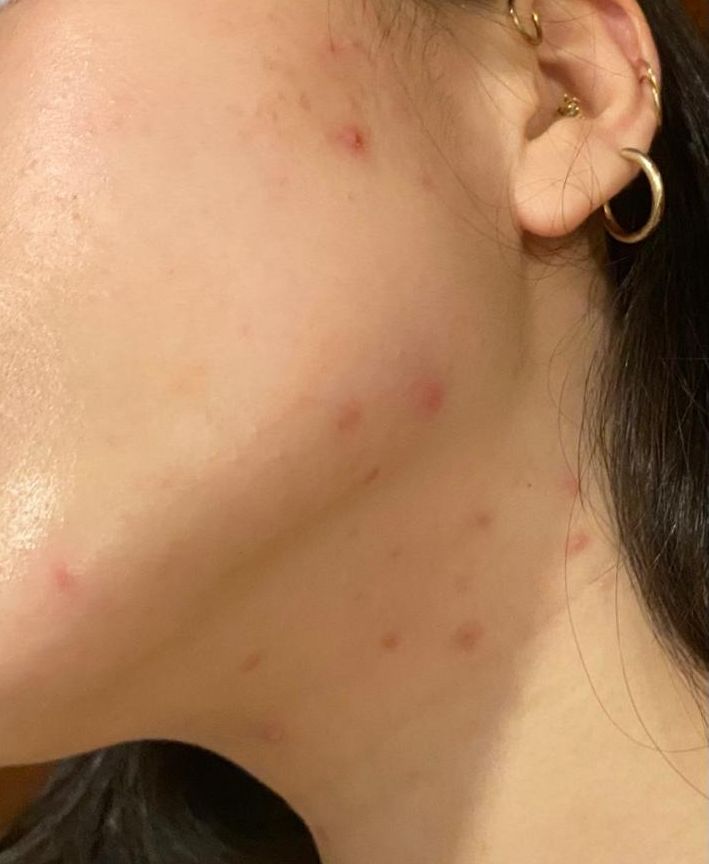
Pictured above: My skin during two different periods
READ: Acne face mapping: Our scientifically-backed guide to your breakouts
Sometimes they are small, baby breakouts that just add texture to my skin. Annoying, but manageable. Other times, they are inflamed pustules that seem to be perpetually at a head. Again, annoying, but manageable with some spot treating. At the worst times, they are huge, angry cysts that pop up with a vengeance, leaving scars whether I pop them or not. These are painful, but they usually crop up on my back, which means that the “out of sight, out of mind” approach is my go-to treatment plan. All in all, the breakouts I deal with now are nothing compared to the more consistently under-the-skin, cystic breakouts that I used to deal with, so I won’t complain.
READ: All the different types of acne, explained—and how to treat them
That said, I would be lying if I said that acne didn’t take a peg or two off my self-esteem for a long while. Regardless, my skin is finally at a point where I am happy with it (or I’ve just gotten too tired to care—the jury is still out on that one), and though it isn’t “perfect” by any means, I’m really not bothered anymore. As long as it looks good enough, eh?
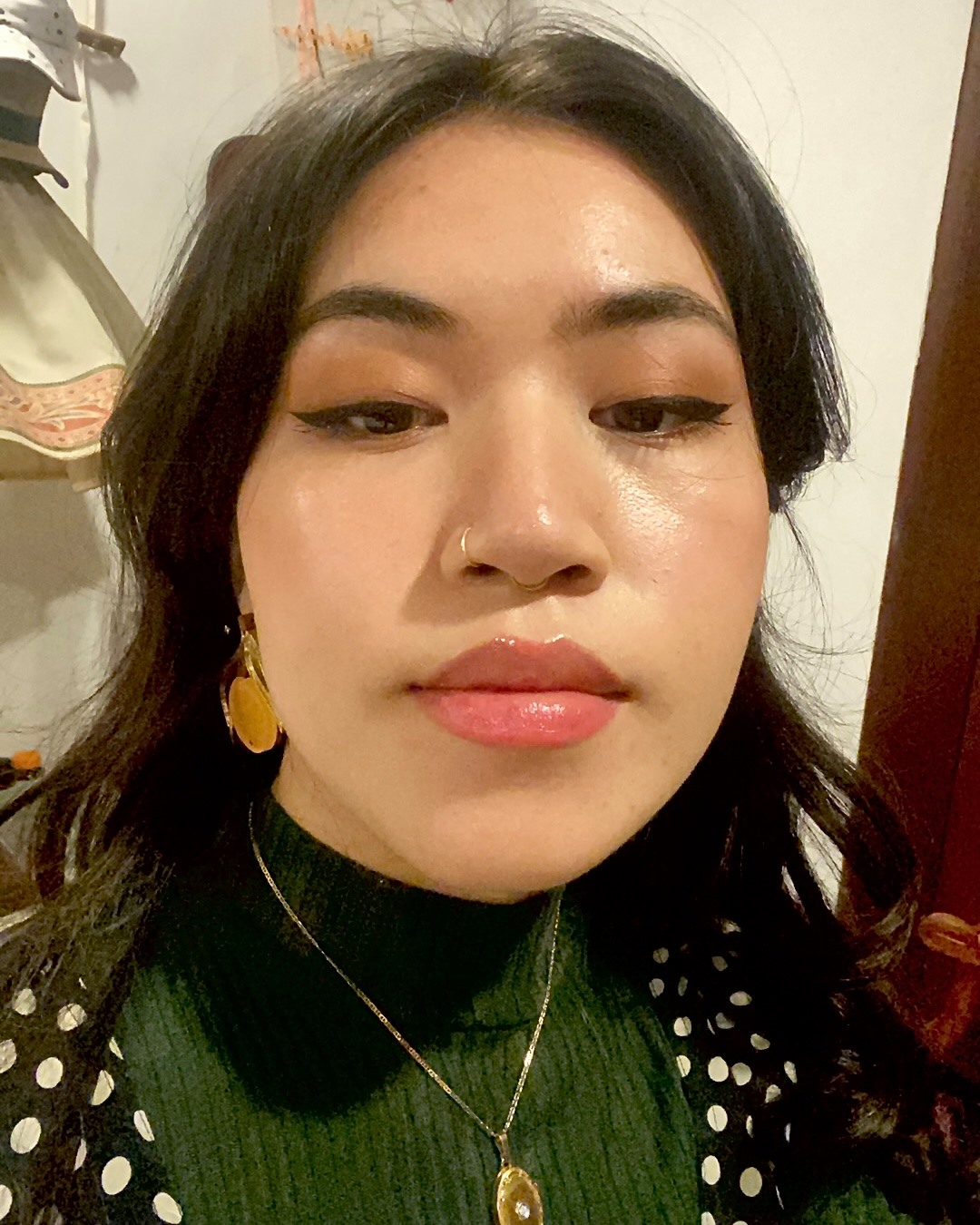
Getting to this point required a lot of trial-and-error—emphasis on the error—but I’ve finally fine-tuned a routine that works for me… at least until my skin decides to reinvent itself again. Firstly, I do have to say that I attribute a lot of my progress to isotretinoin. I am fortunate enough to have had access to acne medication, and even more fortunate that it actually worked for me (we’ll get into this a little later on, though). On top of that, I’ve adopted a skincare routine that accommodates this routinely dramatic change in skin type, which has been integral to clearing and managing my skin.
Ahead, find all the things I learned on my quest to clear skin.
DISCLAIMER: What worked for my skin may not work for yours, and vice versa. I’m just putting this out there in case there’s something in here that could help someone else with their acne!
Stop squeezing
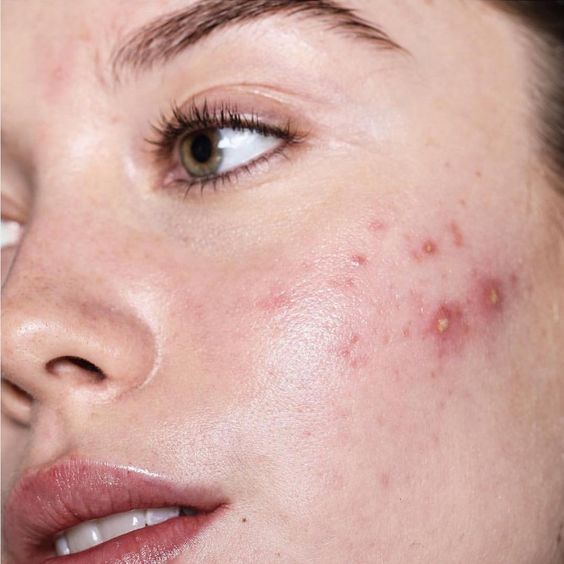
Believe me—I get it. Like most people, I have an obsessive need to pick at anything on my face, and pus-filled pimples are the perfect victim. However, though this was excusable in 2012, it’s 2021 now. Do we really need to go through this again?
Squeezing your zits can lead to irreversible skin damage, especially when you’re not doing it right—and I can tell you now that you’re definitely not doing it right. If you really, really need an extraction, go to a professional. Fail to heed my advice and you’ll be looking at some permanent scarring.
READ: 9 Skincare mistakes you may be making, from using pore strips to bingeing on exfoliants
No more home remedies
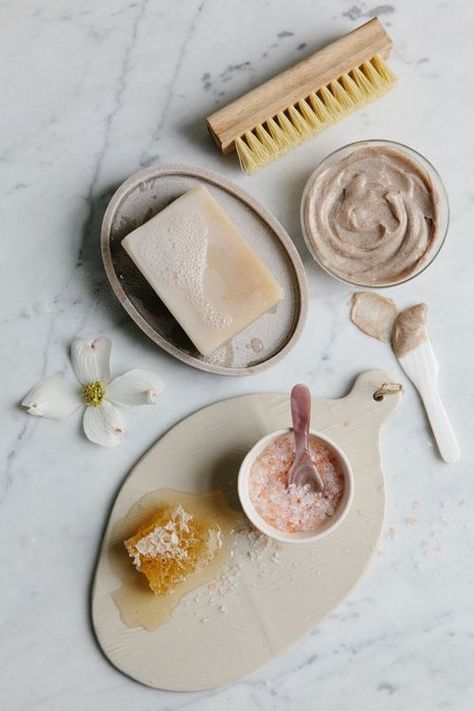
Okay, I’ve been here. I get it. I’ve panicked whenever a monster spot has cropped up in the middle of my face. I’ve been desperate to get rid of a big, unconcealable spot by any means necessary. I’ve pored over countless “home remedy” advice columns that recommend some concoction of toothpaste, lemon juice, pure tea tree oil, or vinegar for spots. Let’s just say that if it was on the internet in 2012-2016, I’ve tried it. Where did it leave me? Usually, worse off than where I started and, in the case of the vinegar, with a really nasty chemical burn.
Needless to say, home remedies are never a good idea. PS: Feeling “the tingle” or “the burn” doesn’t mean that the remedy is working—it means you’re damaging your skin and making matters worse.
Stop with the face scrubs
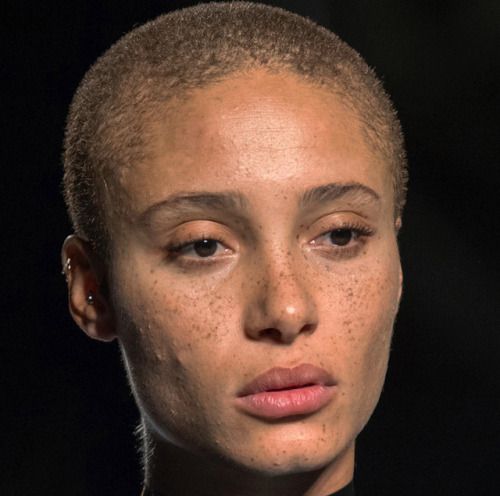
Like most clueless teenagers, I was a huge fan of one particular apricot scrub. You know which one I’m talking about. In fact, it was my go-to skincare necessity for ages. Needless to say, it did more damage than good, and it is now banished from my bathroom vanity.
Instead of chunky face scrubs that leave your skin open to microabrasions and damage, opt for a fine-grain physical exfoliant that is uniform in shape and, therefore, more gentle. Personally, I found that the Tata Harper Regenerating Cleanser worked wonders for me.
Better yet, put yourself onto chemical exfoliants instead—which brings me to my next point.
Invest in chemical exfoliants
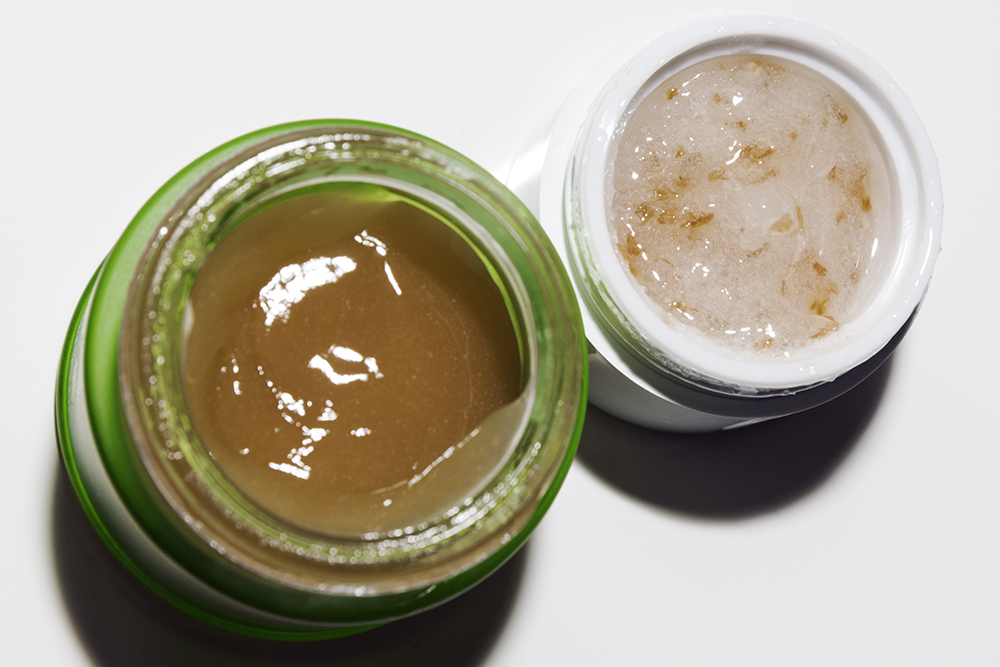
I could write an essay on chemical exfoliants—and, as it turns out—I already have!
READ: Guide to chemical exfoliants: What are they, how to use them and how much is too much?
For the TL;DR version, here is the scoop: Chemical exfoliants come in three distinct forms: Alpha Hydroxy Acids (AHAs), Beta Hydroxy Acids (BHAs), and Polyhydroxy Acids (PHAs). They are invaluable additions to any skincare routine, and the best part is that they come in many different forms. Nowadays, you can get chemical exfoliants in your cleansers, your toners, your moisturisers, and even your scalp scrubs.
Chances are, you’re already familiar with one particular exfoliant—salicylic acid! It’s a great, oil-soluble molecule that is able to deeply penetrate past the sebaceous oil in clogged pores. The anti-acne factor comes from its anti-inflammatory and anti-bacterial properties, as well as its ability to gently push out dead skin, bacteria, sebum, and other pore-clogging debris.
Just be careful not to go overboard: They are acids, so if used incorrectly they can damage your skin barrier. I’m familiar with this feeling—beauty is my job, so trying and testing lots of products comes with the territory. Now, while this is great for my curiosity, my skin tends to find it overwhelming. When my barrier is feeling a little run-down, I reach for soothing, hydrating products and skip out on any powerful actives until it is repaired.
SHOP: Laneige Cica Sleeping Mask
BONUS TIP: Vitamin C is another great brightening antioxidant with exfoliating properties!
Try retinols and retinoids on for size
View this post on Instagram
If like me, you’re struggling with hyperpigmentation or scarring, products with retinol are a godsend. It has really come into the limelight recently, and the hype is definitely warranted. In short, retinol is an over-the-counter vitamin A derivative that is typically less bioavailable (read: lower in efficacy) than other prescription vitamin A treatments like topical retinoids or isotretinoin (yes—Accutane is a vitamin A derivative!).
In general, retinol it easier to get your hands on, and though it isn’t as potent as its prescription counterparts, there is evidence to suggest that it does help to boost collagen production and skin turnover, which in turn improves the appearance of dark spots and hyperpigmentation. In addition, retinol is also a great way to reduce the appearance of wrinkles and fine lines.
If you can get your mitts on the stronger stuff via a dermatologist, that’s also a great option for acne!
Wear SPF
View this post on Instagram
Sun protection should already be a part of your day-to-day anyway, but it is an absolute necessity with the introduction of retinols and chemical exfoliants into your routine.
READ: The dos and don’ts of layering skincare: An easy guide to skincare chemistry
Plus, SPF is a great way to prevent the exacerbation of hyperpigmentation from post-acne inflammation. So, if you’re struggling with scarring, try investing in a good SPF.
SHOP: Sunscreens for every skin type
Cleanse properly
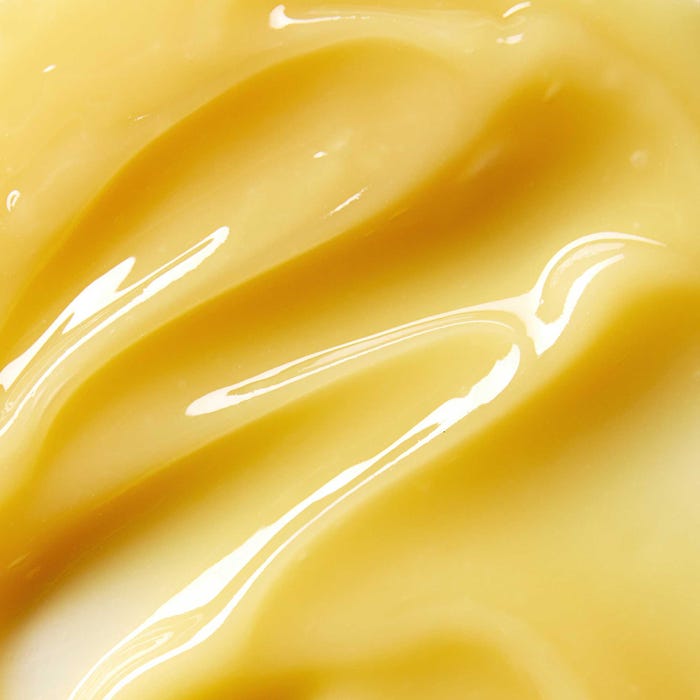
READ: Everything you need to know about oil cleansers and how to use them
Not to brag, but I’ve been double cleansing since before it was a big trend (not that it helped, but still). Regardless, cleansing my skin thoroughly has been instrumental in clearing it.
Before I discovered cleansing balms and oils, I was using olive or coconut oil to rid my skin of makeup and sunscreen from the day. Then, I would go in with a regular cleanser to get the oil residue off. Listen—the routine wasn’t perfect but it worked well enough, despite my poor choices in products.
SHOP: The best cleansing balms for every skin type
Nowadays, I have a few cleansing balm and cleanser combos that I generally gravitate towards, depending on what my skin needs at the time.
READ: Body breakouts: How to get rid of your chest, back and butt acne
With regards to body acne, it should go without saying but showering regularly and thoroughly is fundamental to keeping breakouts at bay. I go into details in the guide linked above (sorry for all the self-plugs, I promise they’re useful), but there are a few other things that can help, such as using shower gels with active ingredients and soaping up your body after conditioning.
READ: Your guide to cleansing yourself after exercise—from cold showers to double cleansing
Double down with hydration
View this post on Instagram
There are a lot of misconceptions when it comes to hydration and acne. Firstly, water is definitely important to healthy skin. Acne-prone skin, in particular, has more trouble with water retention, so staying hydrated is integral to happy skin.
Having said that, no amount of water is going to clear your skin on its own. I drink around 4 litres of water a day, on average. So, trust me when I say that water intake doesn’t solve your pimple problems. I mean… it might—and if so, I envy you—however, drinking “chlorophyll water” as TikTok tells you to will do nothing if you’re not addressing the root cause of your acne.
Further, one of the biggest mistakes I made as a naive youth was skipping out on moisturiser because I had oily skin. I cannot express how bad an idea this was. Newsflash: Oily skin still needs moisture. If you don’t adequately nourish your skin, it will overproduce oil and exacerbate your acne. Not so fun fact: Dehydrated skin tends to produce more pore-clogging oil to overcompensate for the dryness. Instead of skipping out on moisturiser altogether, just use a lightweight moisturiser instead!
READ: The best moisturisers for day and night
Hydration is important, but so are all the other factors you need to consider when it comes to skincare. This includes your diet, exercise, health, and skincare routine. If you think you have all bases covered and you’re still struggling, it may be time to seek professional help.
Go see a dermatologist
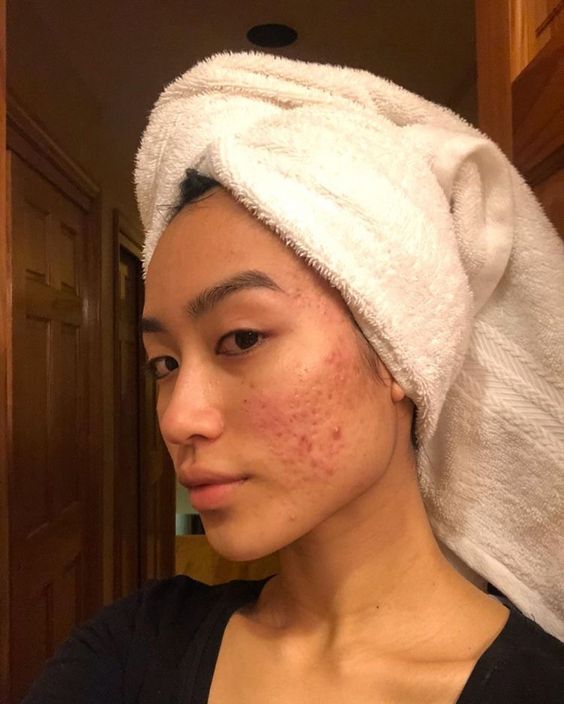
If you’re struggling to pinpoint the cause behind your acne, you should probably see a dermatologist. Self-diagnosing and treating is a slippery slope to frustration and exhaustion.
I mentioned that my body has ingested very many rounds of assorted acne medications. I guess it’s probably worth mentioning that all of them were dermatologist-prescribed. Now, I am in no way endorsing isotretinoin or antibiotics or any other treatment as a cure-all for acne—while these treatments worked wonders in clearing my skin completely, a treatment that works for me may not work for you.
Further, all medications come with risks and side effects, and it is so important to speak to a licensed dermatologist to discuss your options. While I was on medication, I was going for regular health checkups to monitor any changes, and you should too.
Plus, though my skin was virtually perfect while I was actively on medication (those were the days), it wasn’t a permanent cure by any means. Like I said, after going off the medication, my skin did start breaking out again, though the types of breakouts were a marked improvement from before.
Finally, it’s important to note that treatment can be really pricey. However, if you’re in a position where you can afford it, I’d say that it’s definitely worth taking a trip to the doctors.
Consult an esthetician
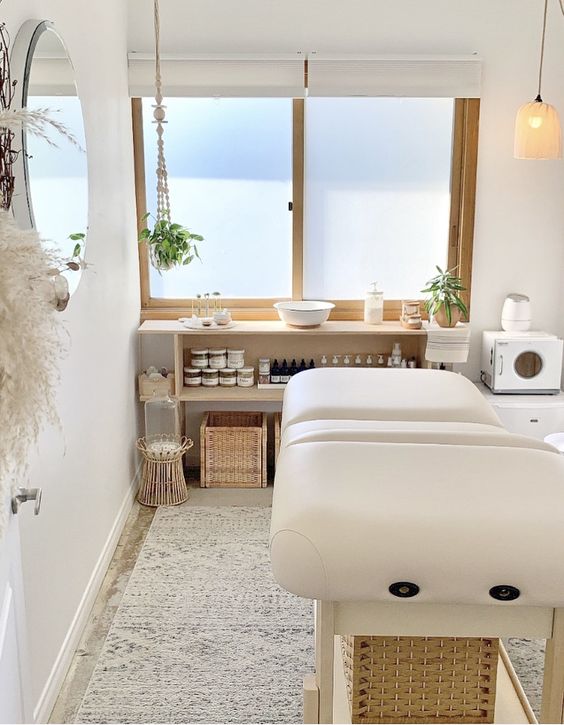
Facials are another great option for managing acne—if you can get yourself to an esthetician, getting your whole face extracted is one way to keep your face clear. Your esthetician will also be able to give you tailored advice on treating your skin as an individual.
That’s all the actual advice I have for today. Thank you for reading this far—I hope my experience helped you in some way. On that note, if there’s anything I’d want you to take from this, it would probably be to stop stressing so much about the way your skin looks. It’s understandable to feel self-conscious about your skin when you don’t feel confident in it. However, take it from me—the chances are that you’re the only one who actively notices your scarring and your spots.
I’d also just like to make it clear that that “perfect skin” is a ridiculous beauty standard to hold yourself to, and I have never seen it outside of social media and adverts. Also, acne and scarring are totally normal and having either doesn’t mean that your skin is inherently “unhealthy” nor does it mean that you’re ugly in any way. Brace for cheese—the road to self-acceptance is long and it sucks, but you’ll get there eventually.
Find more stories like this here.
| SHARE THE STORY | |
| Explore More |




